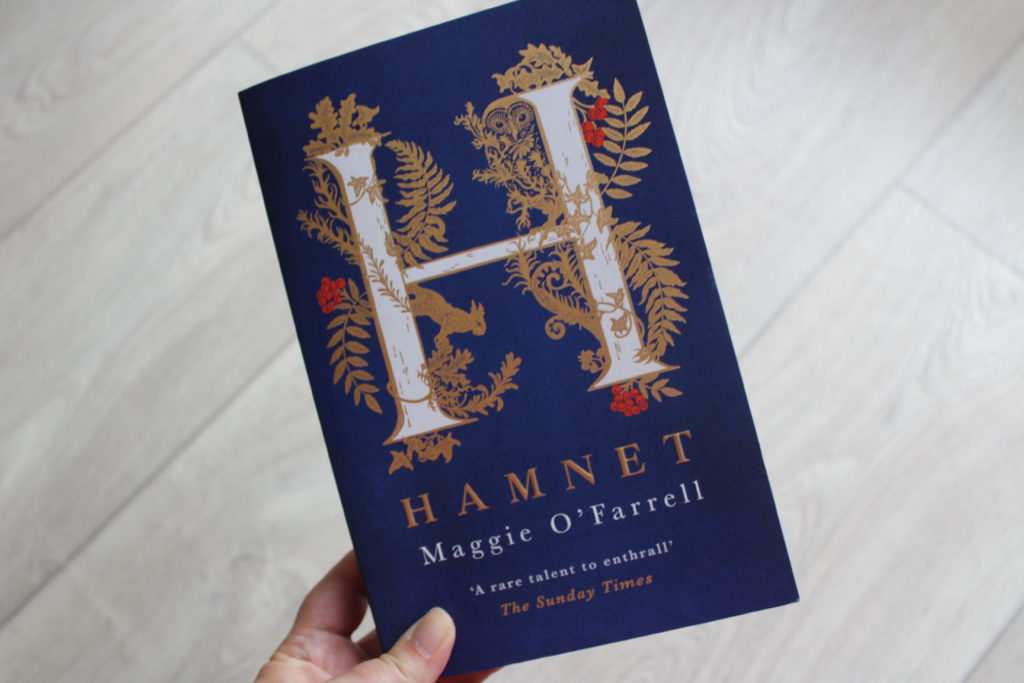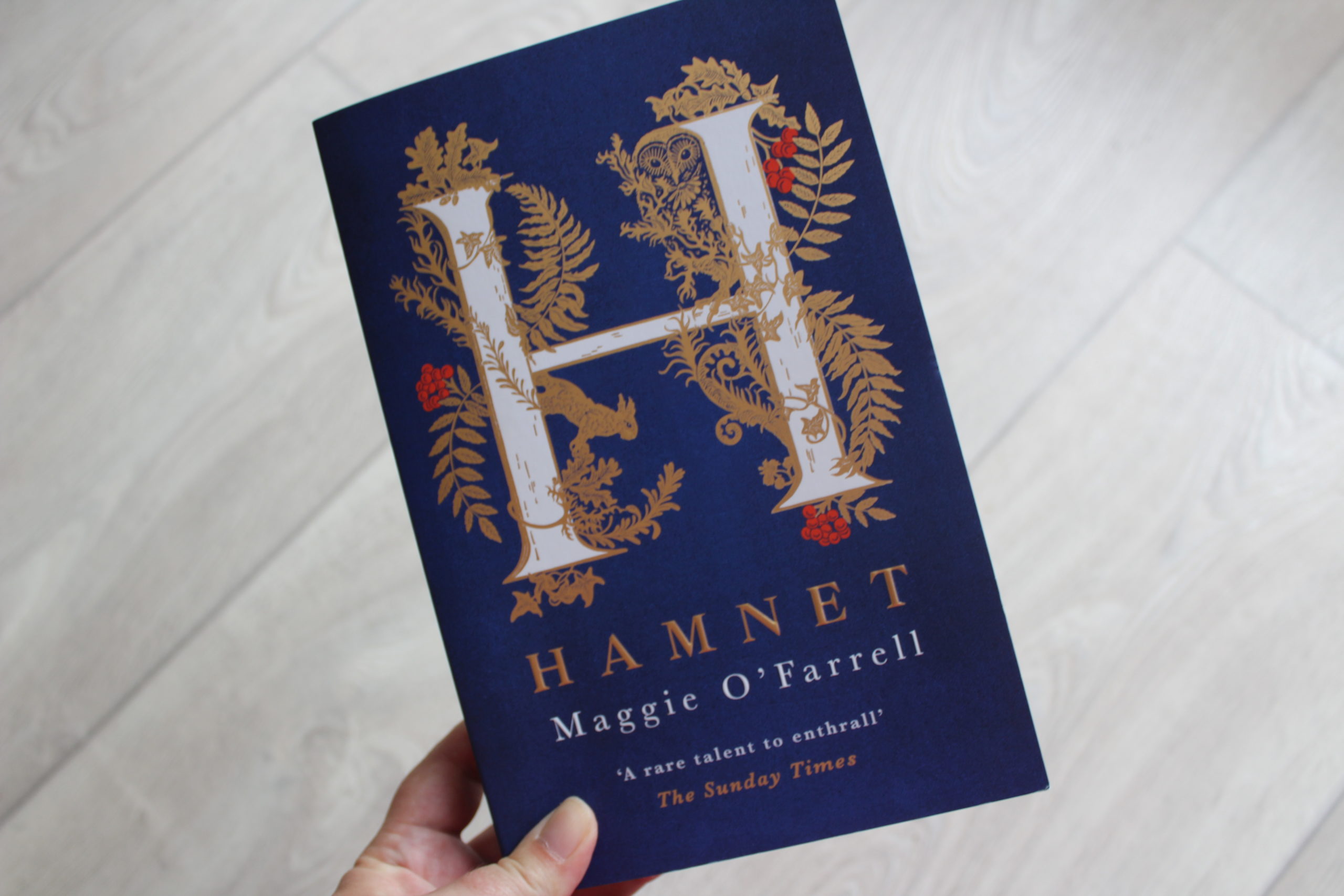
Confession time. I hate the play Hamlet. I know, I know. Hamlet is supposedly one of the greatest written works of all time, but I can’t stand it. I was forced to take a class in university where we read 26 different adaptations of it, and I’ve harboured a grudge ever since. Hamlet the character is a whiny brat, and Hamlet the play is grossly overlong and pretentious. There. I said it. I’ll probably have my theatre credentials revoked over this, but it’s the truth. That’s why it was with no small amount of trepidation that I started reading Hamnet by Maggie O’Farrell. I wasn’t particularly keen on reading a historical retelling of how a play I hate came into being. But everyone I know kept raving about it, so I decided to give it a go. What’s that they always say about never judging a book by its cover?
Well, first things first. Hamnet is not a book about Hamlet. I mean, it is peripherally, but the focus of this story is the people behind the person behind the play. I say person, because the word Shakespeare never once appears in this book. He is an important character, for sure, but he is always referred to as “the father” or “the husband” or “the playwright”. Instead, the main character is Agnes, known to history as Anne Hathaway, the wife of William Shakespeare. Hamnet, despite its title, is undoubtably her story. How she grew up. How she met a Latin tutor and fell in love. And how they married, had three children, and lost a son at the height of the father’s fame as a playwright and actor.
Hamnet is a book about real people. Anne Hathaway did exist, and her son, Hamnet, did die in 1596 at the age of 11. About four years later, one of the (so-called) greatest plays in history was first produced bearing his name. However, beyond that, we know very little about the lives of Shakespeare and his family. Which is why I love what this book has done. Hamnet has taken a woman who is normally a footnote in history, and given her a story all her own. Agnes is strong, determined, intelligent, and fiercely independent. But she is also vulnerable, empathetic, and wildly naive at times. And I dare anyone with a heart to not shed a tear at her grief over losing her beloved son.
I’m happy that Agnes’ story has finally been told, even if it is fictional. But when the real story has been lost to history, fiction will have to make do. This particular fiction is so vivid and lovingly told, I actually wish it were true. I wish that the Agnes of Hamnet was the Anne Hathaway of history, and I wish she could know that her story has not been forgotten. Either way, it is a brilliant book.
I still hate Hamlet though.
Suggestions for artists I should check out? Please contact me with your ideas. I hope you enjoyed your daily helping of art!



